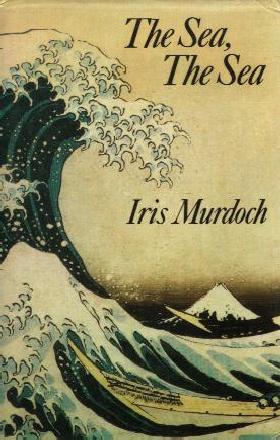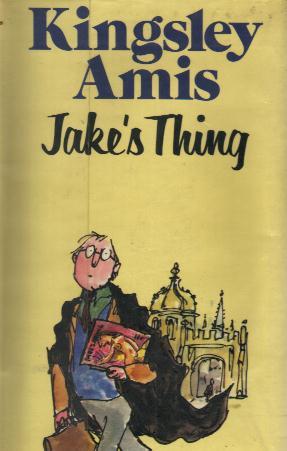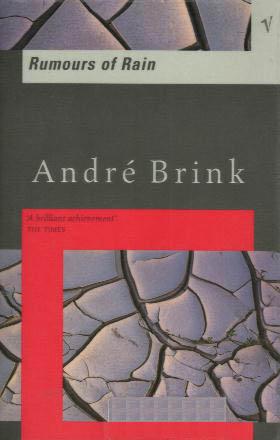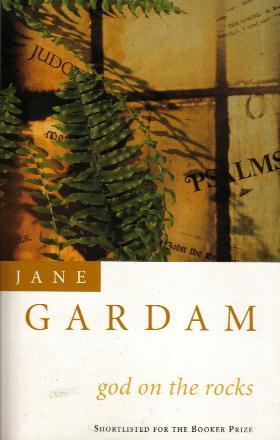
Iris Murdoch
The following novels constitute the shortlist for the 1978 Booker Prize:
Notable Omissions from the 1978 Shortlist

|
The Sea, The Sea Iris Murdoch |
Dustjacket synopsis:
"This is the story of an obsession. It also concerns the use and surrender of magical power.
Charles Arrowby, a well-known theatre director, over sixty and a bachelor, has come to live
in a lonely house beside the sea, 'to repent of a life of egoism.' He has given up the
'trickery' of the theatre, and longs for simplicity and innocence and solitude. Charles
soons runs into difficulties. His house appears to be haunted. Something very odd emerges from
the sea. Women, from whom he intended to escape, reappear. But his new régime changes
suddenly and completely when he encounters an 'old flame' and discovers that an innocent
first love is still the great love of his life. Driven by obsessive passion, Charles attempts
to rescue his lady from her marriage. He confronts a dangerous husband, a whimsical son.
Charles's male helpers have also appeared on the scene, among them cousin James, soldier
turned Buddhist, Charles's life-long rival for the world. Kidnapping and violent death play
their part in the story, and so does the innocent and terrible sea.
"Reflections upon love and hate and fear contribute to the intense atmosphere of this comic tragedy. The Sea, The Sea is a formidably exciting novel about violence and forgiveness."
First Paragraph:
The sea which lies before me as I write glows rather than sparkles in the bland May sunshine. With the tide turning, it leans quietly against the land, almost unflecked by ripples or by foam. Near to the horizon it is a luxurious purple, spotted with regular lines of emerald green. At the horizon it is indigo. Near to the shore, where my view is framed by rising heaps of humpy yellow rock, there is a band of lighter green, icy and pure, less radiant, opaque however, not transparent. We are in the north, and the bright sunshine cannot penetrate the sea. Where the gentle water taps the rocks there is still a surface skin of colour. The cloudless sky is very pale at the indigo horizon which it lightly pencils in with silver. Its blue gains towards the zenith and vibrates there. But the sky looks cold, even the sun looks cold.
I had written the above, destined to be the opening paragraph of my memoirs, when something happened which was so extraordinary and so horrible that I cannot bring myself to describe it even now after an interval of time and although a possible, though not totally reassuring, explanation has occurred to me. Perhaps I shall feel calmer and more clear-headed after yet another interval.
From the Book Club Associates hardback edition, 1978.

|
Jake's Thing Kingsley Amis |
Dustjacket synopsis:
"When trout with almonds and Thunderball on the television seems a more enticing prospect than a romp with your
bosomy ex-mistress from Baltimore, then something is seriously wrong - or so thinks Jake Richardson, an Oxford don nearing
sixty with a lifetime's lechery behind him.
"In pursuit of his lost libido, Jake heads for Harley Street and the consulting room of a miniature sex therapist from the Emerald Isle. Not one to disobey a doctor's order, he runs the full gamut of sex labs in Colliers Wood and trendy 'Workshops', where more than souls are bared. He decks himself with cunning gadgetry, dreams up a weekly fantasy ('Come dirty, Mr Richardson'), pets diligently with his overweight wife Brenda, and browses listlessly through porno magazines behind locked doors. Is sex, and the female one in particular, really worth it? As liberationists abuse him, a neurotic nymph pursues him, a campus hostess bores him into bed - and even his own wife starts actly oddly - Jake seriously begins to wonder.
"Kingsley Amis at his spikiest and best takes a shrewd look at the crankier fringes of psychotherapy, at its hard-ware and jargon, its practitioners and victims and - beyond all that - at where sex, Seventies-style, has landed us. This hilarious and touching study of a satyr in retreat is his funniest novel for a generation."
First Paragraph:
'When did you first notice something wrong?'
'Well, notice, it must be five or six weeks, I could give you the date if I had to. But then as soon as I did notice I realised something had been wrong much further back than that.'
'How much further back?'
'Oh.... A year? Year and a half?'
'About the time your other trouble started to become acute, in fact.'
'Yes. There must be a link.'
By way of answer the doctor gave a quiet sigh. His patient, a round-faced bespectacled man called Jake Richardson, was left to wonder whether this meant that the link was all too grimly real, that only a fool would suppose one existed or that the task of explanation seemed altogether daunting. Jake didn't wonder for long. To have gone on doing so would have been to concede the doctor (Curnow by name) too much importance. When asked why he persistently went to a man he had so little time for, Jake would say that disliking your GP was a good insurance against getting dependent on him.
Now Dr Curnow shook his head a few times and swallowed. In the end he said, 'There's nothing I can do for you.'
From the Hutchinson hardback edition, 1978.

|
Rumours of Rain Andre Brink |
Dustjacket synopsis:
"Winter in South Africa - a time of searing drought, angry stirrings in Soweto, and the shadow of the Angolan conflict
cast across the scorched bush.
"Martin Mynhardt, a wealthy Afrikaner, plans a weekend at his old family farm. But his visit coincides with a time of crisis in his personal life. In a few days the security of a lifetime is destroyed and, with only the uncertain values of his past to guide him, Mynhardt is left to face the wreckage of his future."
First Paragraph:
Gnats. A whole swarm of gnats plastered on the windscreen and the wipers out of order. This, senseless as it may seem, is the first image to present itself whenever I try to recall that weekend. And it is just not good enough any longer. Let me put it this way: it is time I cleared up the ambiguities about exactly what happened in the course of those few days, from Friday to Monday. A curious thing to admit, since I was fully alive to what was happening all the time. Yet I've always felt that something must have escaped me, a submarine something - the way one sometimes wakes up knowing one has had a dream of tremendous importance, if only one can grope back towards it, rowing upstream against the sluggish water; but in the end the dream remains beyond one's grasp.
I have simply not had the time for exploring it. If one is occupied, for twelve to fifteen hours a day, with meetings and memorandums, consultations, options, decisions, timetables and travels, time for a "private life" or for re-examining the past becomes a luxury and memories almost obscene. Now, suddenly and quite unforeseen, I find myself with nine days in London, an existence in transit between the conference of the United Nations Association, from which our delegation was forced to withdraw this morning, and my next negotiations in Toykyo not due until Thursday week.
From the Vintage paperback edition, 2000.

|
The Bookshop Penelope Fitzgerald |
Dustjacket synopsis:
"This, Penelope Fitzgerald's second novel, was her first to be shortlisted for the Booker Prize.
It is set in a small East Anglian coastal town, where Florence Green decides, against polite
but ruthless local opposition to open a bookshop. 'She had a kind heart, but that is not much
use when it comes to the matter of self-preservation.'
"Hardborough becomes a battleground, as small towns so easily do. Florence has tried to change the way things have always been done, and as a result she has to take on not only the people who have made themselves important, but natural and even supernatural forces too. This is a story for anyone who knows that life has treated them with less than justice."
Quotes:
"A beautiful book, a perfect little gem" - Kaleidoscope
"Its stylishness, and this low-voiced lack of emphasis are a pleasure throughout, its moral
and human positions invariably sympathetic. But it is astringent too: no self pity
in its self-effacing heroine." - Isabel Quigley, Financial Times
"On any reckoning, a marvellously piercing fiction." - Valentine Cunningham, Times Literary Supplement
"I do not think I have ever before advised a female novelist to write at greater length." -
Auberon Waugh, Standard
First Paragraph:
In 1959 Florence Green occasionally passed a night when she was not absolutely sure whether she had slept or not. This was because of her worries as to whether to purchase a small property, the Old House, with its warehouse on the foreshore, and to open the only bookshop in Hardborough. The uncertainty probably kept her awake. She had once seen a heron flying across the estuary and trying, while it was on the wing, to swallow an eel it had caught. The eel, in turn, was struggling to escape from the gullet of the heron and appeared a quarter, a half or occasionally three-quarters of the way out. The indecision expressed by both creatures was pitiable. They had taken on too much. Florence felt that if she hadn't slept at all - and people often say this when they mean nothing of the kind - she must have been kept awake by thinking of the heron.
From the Flamingo paperback edition, 1989.

|
God on the Rocks Jane Gardam |
Dustjacket synopsis:
"During one glorious summer between the wars the realities of life and the sexual ritual dance of the adult world creep
into the life of young Margaret Marsh. Her father, preaching the doctrine of the unsavoury Primal Saints; her mother,
bitterly nostalgic for what might have been; Charles and Binkie, anchored in the past and a game of words; dying Mrs
Frayling and Lydia the maid, given to the vulgar enjoyment of life; all contribute to Margaret's shattering moment of
truth. And when the storm breaks, it is only God who is on the rocks as the summer hurtles towards drama, tragedy and a
touch of farce."
Quotes:
"Jane Gardam has a spectacular gift for detail of the local and period kind, and for details which make characters
so subtly unpredictable that they ring true" - Time Literary Supplement
"Exact, piquant and comical" - Observer
"Marvellous...a wonder" - Vogue
"A fresh, honest and charming book" - Spectator
"Tantalising...funny, sharp" - Daily Telegraph
First Paragraph:
Because the baby had come, special attention had to be given to Margaret, who was eight. On Wednesdays therefore she was to go out with Lydia the maid for the whole afternoon. Wherever Lydia liked. So long as Margaret's mother knew of course where that was.
Lydia said, the first Eednesday, that she had thought of the train. Maybe to Eastkirk - and a nice walk about on the Front and down the woodland. Margaret's mother said that Eastkirk meant money and the sands were better here at home, but Lydia said that Margaret would like the woods.
From the Abacus paperback edition, 1997.

|
A Five Year Sentence Bernice Rubens |
Dustjacket synopsis:
"'Miss Hawkins looked at her watch. It was two-thirty. If everything went according to schedule, she could safely
reckon to be dead by six o'clock.'
"But by the day's end, events have taken a dramatic turn and Miss Hawkins is sentenced to live. Forcibly retired, she is presented by her colleagues with a five-year diary. Programmed since childhood to total obedience, Miss Hawkins slavishly follows her diary's commands until the impossible happens - she meets a man. As a last reprieve from the horrors of loneliness she embarks on a determined full-scale mission to taste life's secret pleasures - and pains - until the cup runs dry."
Quotes:
"Resoundingly confirms Bernice Rubens' place among our most distinguished novelists" - New Statesman
"From the opening sentence to the last devasting summation this novel is extraordinary" - Publishers Weekly
First Paragraph:
Miss Hawkins looked at her watch. It was two-thirty. If everything went according to schedule, she could safely reckon to be dead by six o'clock. Maybe I'll listen to the news first, she thought to herself. I won't need to bother with the weather forecast.
From the Abacus paperback edition, 1990.
Notable Omissions from the Shortlist:
"Tirra Lirra By the River", Jessiaca Anderson
"Young Adolf", Beryl Bainbridge
"Walter" David Cook
"Plumb", Maurice Gee
"The Human Factor", Graham Greene
"The Murderer", Roy A. K. Heath
"The Cement Garden", Ian McEwan
This page and its contents are copyright © 2002 by Perry Middlemiss, Melbourne, Victoria, Australia.
Last modified: April 17, 2002.